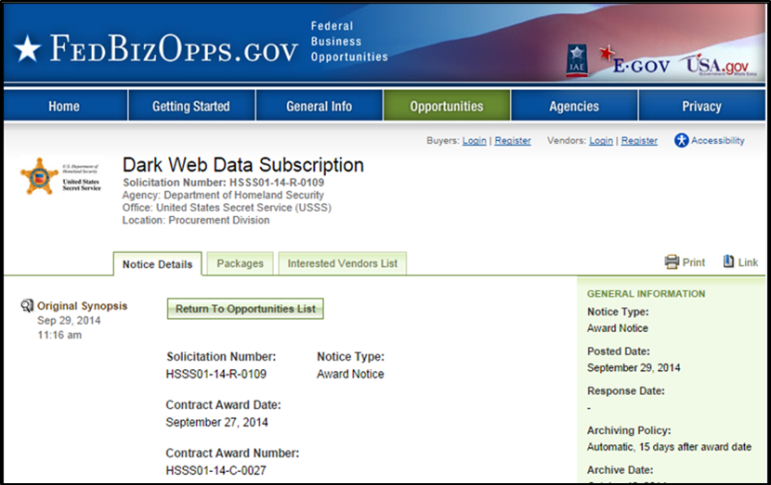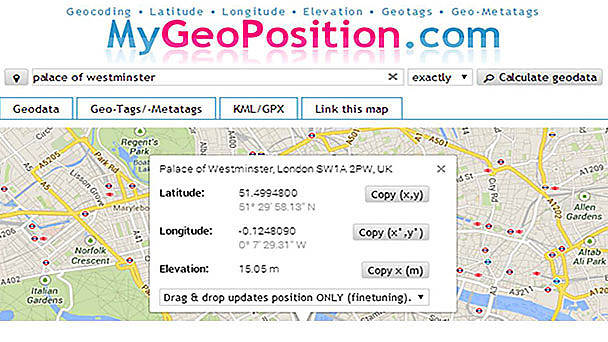
Methodology Teaching & Training
Document of the Day: U.S. Secret Service Contract for “Dark Web” Research
Paper trails have always been of great interest to investigative journalists. Digging into documents can tell a great deal about people, organizations, and what they’re up to. Here’s today’s Doc of the Day, a contract recently filled by the U.S. Secret Service, the law enforcement group charged with protecting the president and other political VIPs. It’s for “Dark Web Data Subscription.” More than 90% of the Web is thought to be unsearchable by Google and other common search engines. This is often called the dark or deep Web, and it includes sites behind firewalls and passwords, unusual formats, criminal and other hidden networks, and lots and lots of databases.







